AddUp and the WBA Aachener Werkzeugbau Akademie are proving the benefits of metal AM for mold making to six tools making companies through its Tooling Study.
Launched in January 2023, this consortium study has delivered the first prototypes of injection molds with optimized internal cooling channels. The results of this study will be presented and published at the WBA annual meeting in late 2023.
AddUp, a global metal additive manufacturing OEM for Powder Bed Fusion (PBF) machines, established its AM Tooling Competence Centre in Aachen in partnership with the Werkzeugbau-Akademie (WBA) in early 2023. This facility, also serving as AddUp’s German subsidiary, was created to accelerate the adoption of metal AM by tooling companies. AddUp has extensive experience in the tooling industry developing applications and materials best suited for mold and tool production.
The AM Tooling Competence Centre provides a resource for tooling manufacturers to develop their applications and partner with a global leader in PBF technology. The facility is equipped with a FormUp 350 PBF machine and tool makers have the opportunity to submit application cases for evaluation and to study all aspects of their project, from the design applied to PBF, to the profitability analysis and the study of series production.
AddUp and the WBA are conducting an AM Tooling Study with six select companies. This first group of companies include: Pöppelmann, Siebenwurst, Harting, Zahoransky, GIRA and FRAMAS. The study offered them the opportunity to test the introduction of AM and to specifically implement the technical and economic advantages of AM technology for their injection molds.
Siebenwurst
Automotive Industry – Door Handle Slider Mold

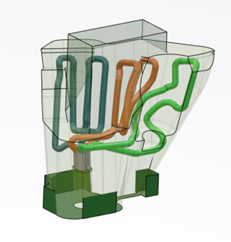
Zahoransky
Medical Industry – Pipettes Molds
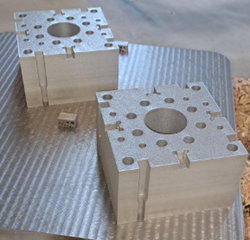
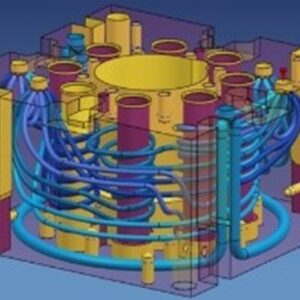
GIRA
Energy Industry – Sockets Molded Inserts
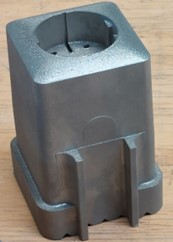
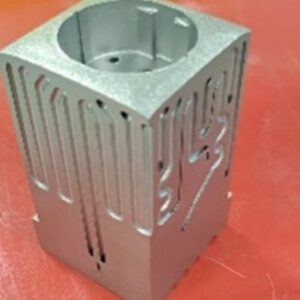
Pöppelmann
Energy Industry – High Voltage Plug Cap Outside and Inside Inserts
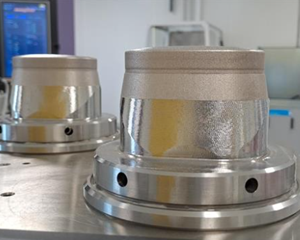
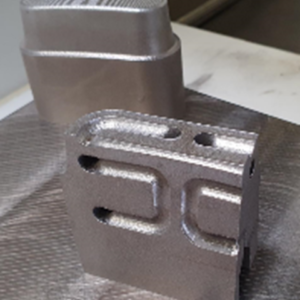
Harting
Energy Industry – Connector Seal Mold Inserts and Pressure Plate
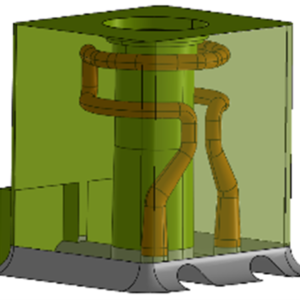
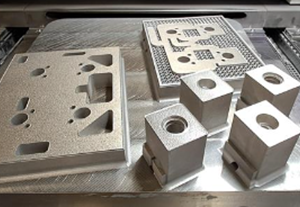
Framas
Consumer Goods – Soccer Shoe Mold
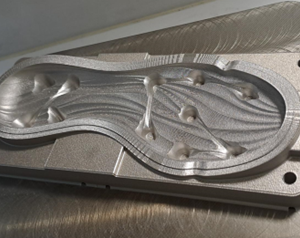
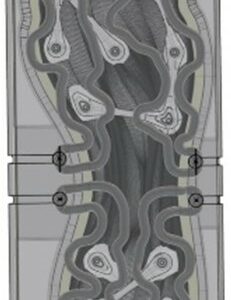
The study is supported by companies like iQTemp (AM design and simulation of cooling channels), Deutsche Edelstahlwerke (AM materials), 3D Laser BW (specialist in mold inserts with near-contour cooling systems and AM service provider) and Siemens NX, and institutes, such as Fraunhofer ILT and ACAM.
Traditionally, injection molding manufacturers must deal with certain constraints inherent to the manufacturing of their molds. The mold’s performance is directly related to its ability to cool the injected parts. PBF technology is adapted to create complex cooling channels, positioned as close as possible to the mold walls. By adapting the shape of the channels to cool the surface of the part more homogeneously, manufacturers can see improved quality and experience higher productivity with a reduction of cooling and cycle times.
The choice of material is critical for tool makers, as the molds must meet high requirements especially in terms of corrosion resistance, heat conductivity and fatigue. AddUp has 20 years of AM experience with Maraging 300, which is successfully used in series production by Michelin to manufacture over a million tire molds sipes per year. Additionally, AddUp has developed AM build parameters for the AISI 420 corrosion resistant tool steel, also referred to in the German standard as 1.2083, which is now available as an AddUp standard additive material for injection molding in the future. AddUp is committed to supporting the tooling industry and continues to develop other materials to maximize productivity and efficiency.
The six companies who have participated in the AM Tooling Study have identified their own case studies for parts which have been manufactured using traditional machining processes. AddUp, with the support of their partners, has evaluated each of these parts to determine how they could be optimized with AM. Each part was then designed for AM, optimized for conformal cooling, and manufactured on AddUp’s highly productive 4-laser FormUp 350. Post processing was then completed by the tooling company itself or by the WBA. Each of these ready-to-use molds were then sampled on the respective tooling company’s production lines and the comparative data will be provided to the WBA. In the 4th quarter of 2023, the results of this first Tooling Study will be officially published by the WBA during its General Assembly.
In September, AddUp will launch a follow-on Tooling Study and welcomes any tool maker to join! To learn more about AddUp’s AM Tooling Competence Center, or to inquire to be included in the next study, visit www.addupsolutions.com.